SARAWAK POLLS | Several days before the Sibu by-election in 2010, then prime minister Najib Abdul Razak made his infamous "You help me, I help you" speech while campaigning in Rajang Park, Sibu.
At the time, he said if Sarawak BN candidate Robert Lau won, his administration will sign an RM5 million cheque for a flood mitigation project.
Although Sarawak BN was unsuccessful in the by-election, Putrajaya and the Sarawak government have spent hundreds of million ringgit on three phases of Sibu's flood mitigation project.
Eleven years after Najib's speech, Sibu's residents will go to the polls again this Saturday but their flood woes remain unresolved.
Rajang Park resident Wan Delimawati, 48, told Malaysiakini that her home has been flooded three times this year alone.
The last incident happened last month. She said her kitchen was flooded. The most damage was done to the family car and motorcycle.
"If there is heavy rain, the flood waters will come. If it floods in the morning, the water will only recede in the afternoon," she said.
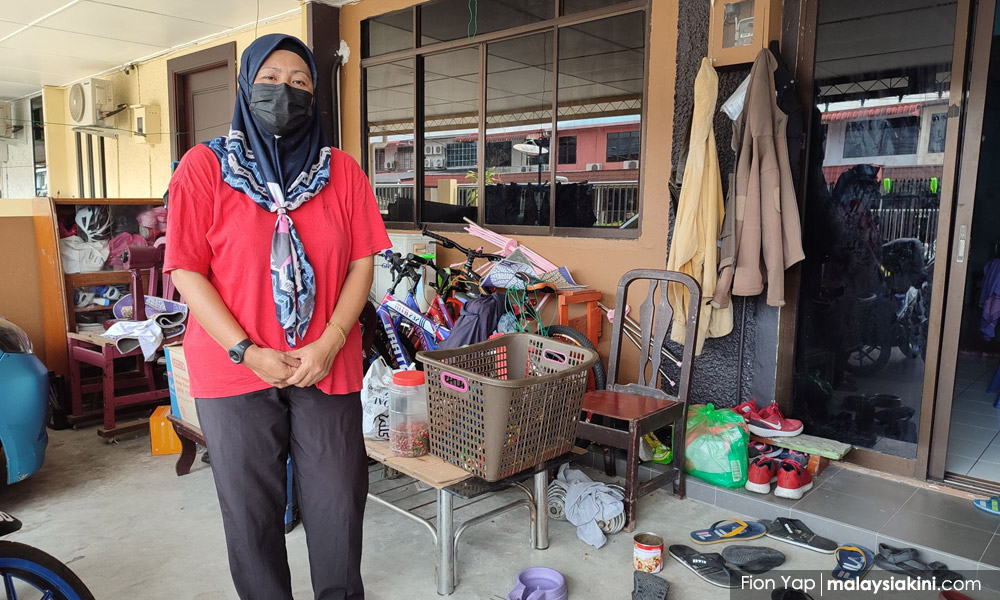
Floods and sinkholes
Flooding is not isolated to Rajang Park for Sibu sits on the confluence of the mighty Rajang River and Igan River.
The Rajang spans 350km and is Malaysia's longest river. The river is nicknamed "Swan river" while Sibu is nicknamed "Swan City". The city was formerly host to a thriving shipbuilding industry.
As Sibu sits on peatland, any development and maintenance are costly.
In the Nangka area, there are 11 houses at the end of a gravel road known as Lorong Old Oya 22, some 15 minutes away from Sibu city. That is the only road out of the area but it floods every time it rains.
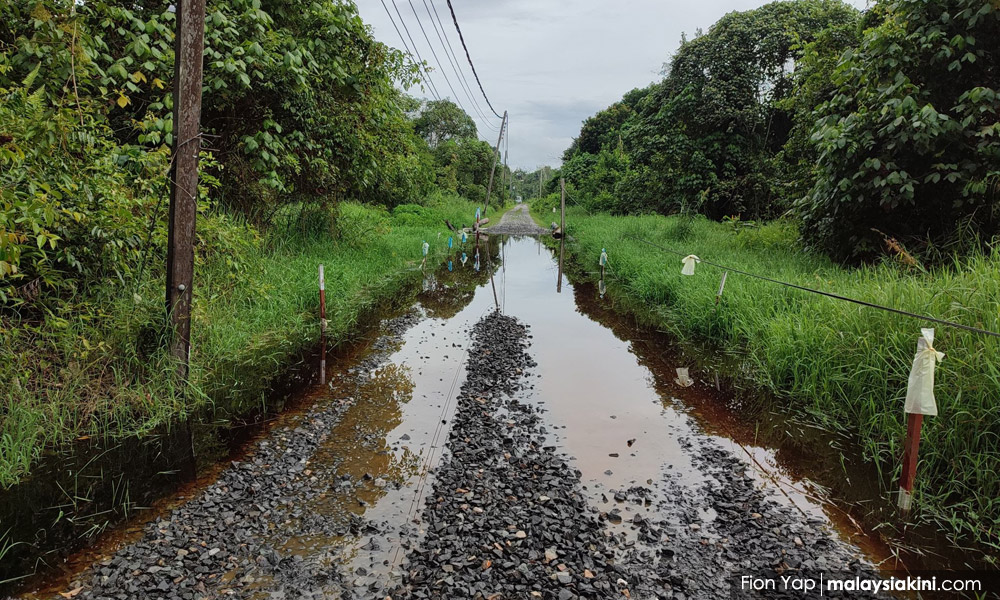
One of the villagers, Huong How Hong, told Malaysiakini that the water level had once reached his waist two months ago after heavy rain.
When Malaysiakini visited the place on Dec 12, the water level had receded but there was still puddles in the middle of the road. Residents say damage to their vehicles on this road is not uncommon.
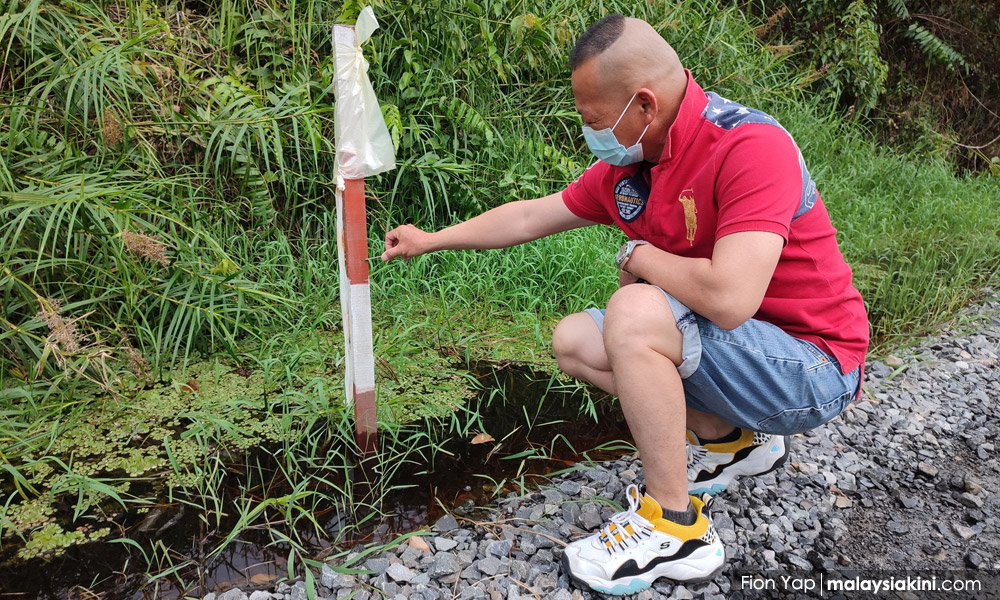
Won't wade waters to vote
Huong, 53, is the Sibu traders guild chairperson. He had lived in this village his entire life.
He told Malaysiakini, when he was a child, floods would only happen once in 10 years. Now, it is twice a month. Each time, it would take days for the flood waters to recede.
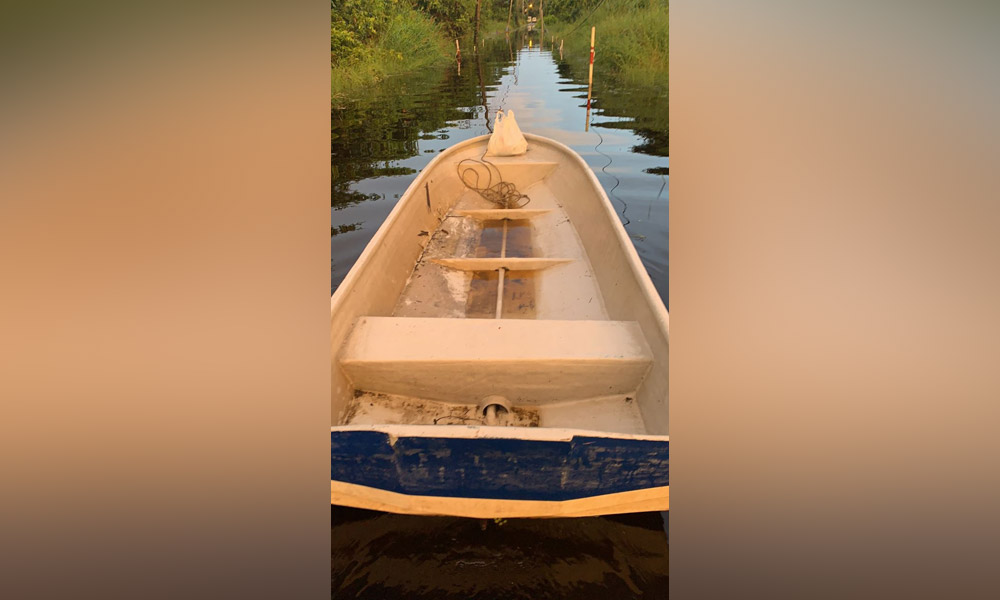
Whenever there is heavy rain, Huong's first instinct isn't to bring in the clothes. Instead, he starts his car and parks it on higher ground.
Huong said he can only collect his vehicle the day after it rains. But first, he has to wade through the water and shower at a neighbours' house before getting into his vehicle.
Huong complained that he has been raising this issue to several candidates in Sibu as well as councillors but the authorities keep delaying or remain coy about the situation.
Huong also claimed that for the past 10 years, the assemblyperson in Nangka has only visited them once during the flood.
"Election time used to be our best opportunity to be heard. Every election, I complain. This election season, no one visited me," he said.
Huong said he has been voting for Sarawak BN in the past. This time around, he does not want to vote because it is currently raining season and he does not want to brave the waters to head to the polling station.
Disappointment towards the performance of Gabungan Parti Sarawak (GPS) plays an important role as well. He believed most of his neighbours in the same village will not go to the ballot box this time.
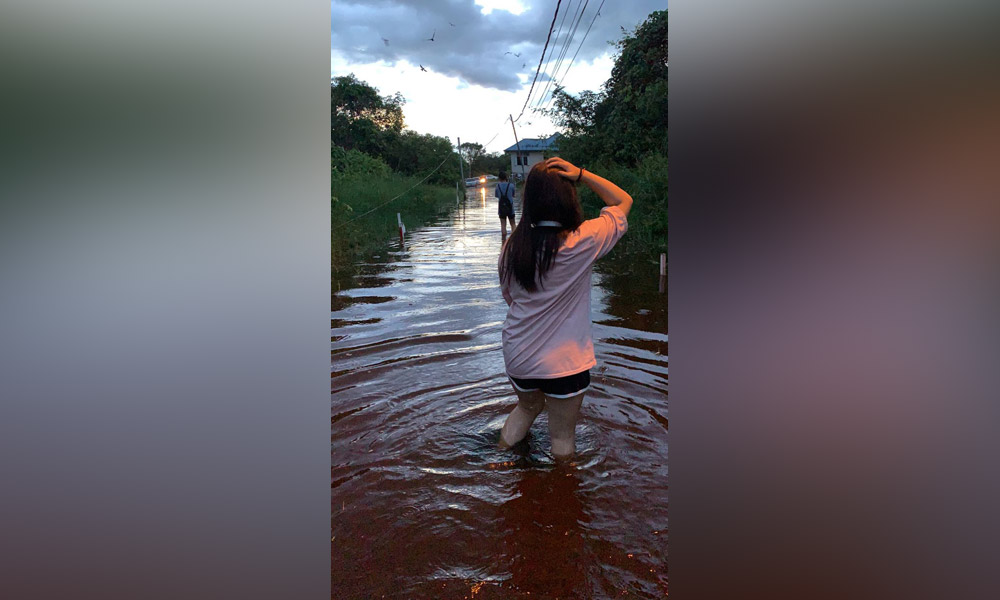
Sinkholes swallow property prices
Lorong Berlian in Bukit Assek area is among the worst-hit whenever it floods in Sibu. A kindergarten and primary school are in the vicinity. Houses in this area should have been prime property.
However, once some houses started sinking or were hit by sinkholes, people moved out for their safety and property prices crashed.
One of the victims was a vegetable trader who wished to be known only as Kong, aged 54.
Kong said he could not tolerate flooding in his neighbourhood and the Sibu area. This prompted him to move to Miri with his entire family, only to return to Sibu for occasional visits.
"If my home was not affected, we'd definitely stay," said Kong, who showed Malaysiakini his former home.
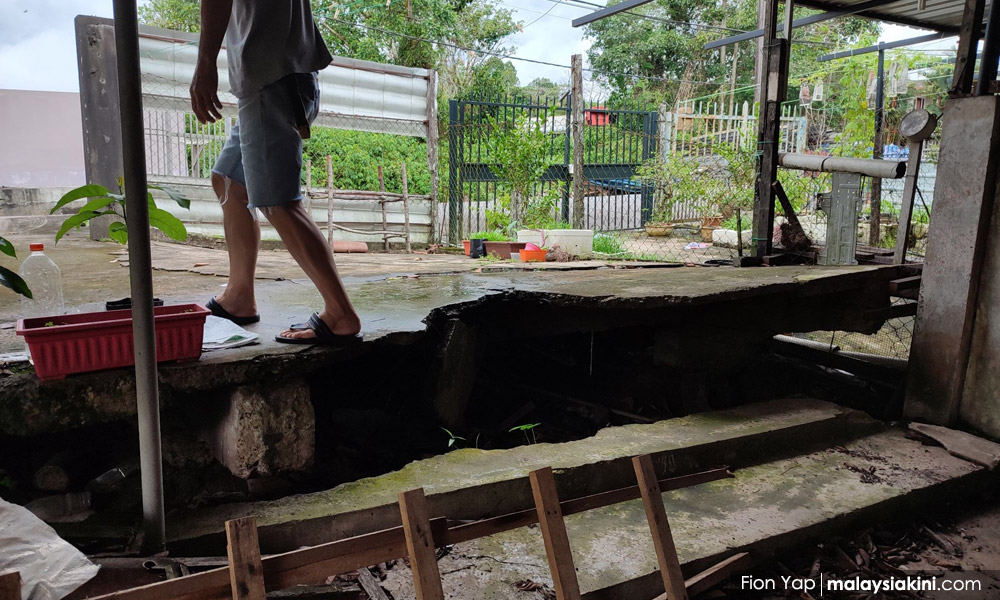
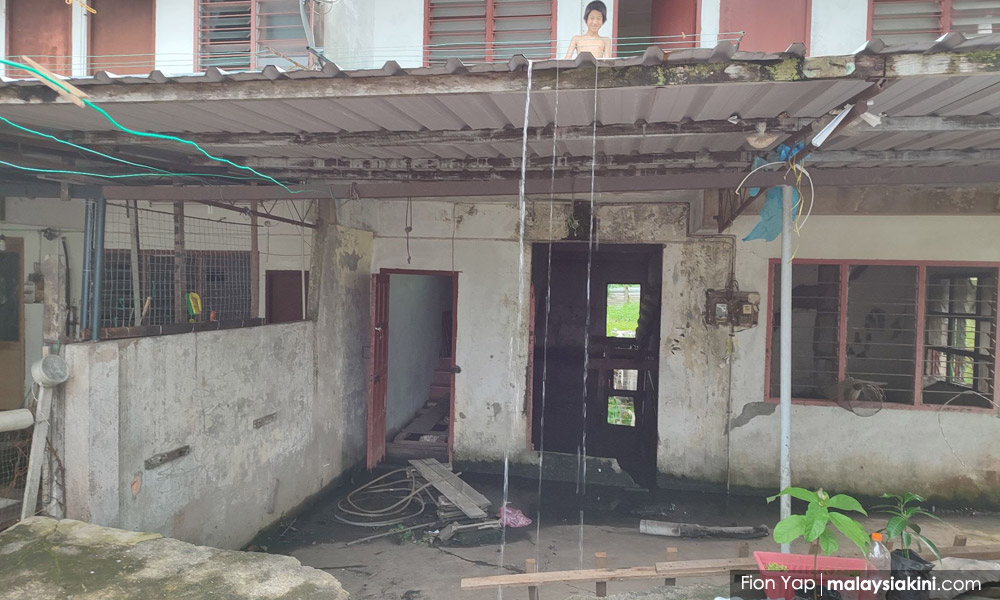
Parts of his home are now lower than the road outside and the drain at the back. This causes the ground floor of his home to be flooded.
The ground floor of his home is lined with planks to allow him access to the staircase. When he is Sibu, he lives upstairs. When Malaysiakini visited his home, the ground floor was uninhabitable as there were a few inches of water.
Kong said he cannot rent out nor sell his house in such a condition.
"There are rural folks who came to Sibu to work and have asked to rent the house because there is a school nearby.
"However, my house is in a bad condition. What if there is an accident? Who will be responsible?" he asked.
Kong was told that the neighbourhood was once a peat swamp before houses were built. He believed that if the local authorities had regularly cleaned the drains, the situation will not be as serious.
Both Huong and Kong lived in neighbourhoods that are on the eastern banks of the Rajang River and within Sibu's city limits. There is not much development on the western bank, where villages face even worse flooding.
In the Bawang Assan constituency, especially the Lebaan area, the water once stayed in the victim's house for two months after the flood, destroying their crops and deprivingd them of their livelihood.
Independent accounts from two residents in the area said that flooding has only become a major problem over the past 10 years and the situation was getting worse.
What are the candidates promising?
As it is currently election season, Sibu residents are also being “flooded” with many promises from candidates vying for their votes. Virtually every candidate is making promises related to floods. This is a summary:
Parti Sarawak Bersatu president and Bawang Assan candidate Wong Soon Koh: Promises to implement Phase 3 and 4 of the state governments flood mitigation plan if his party forms a new government.
Progressive Democratic Party president and Dudong candidate Tiong King Sing: Upon being elected, dug-out drains in the Sibu region will be upgraded to concrete lined drains. Rajang River will be dredged to mitigate the water volume.
Gabungan Parti Sarawak Bukit Assek candidate Joseph Chieng: Upon being elected, Bukit Assek, the oldest neighbourhood in Sibu area, will be redeveloped. He also promises to solve the problems of clogged ditches, while improving the drainage system at Sentosa area.
Sarawak United Peoples’ Party Pelawan candidate Michael Tiang: To upgrade the earth drains in the Pelawan area to concrete builds. The main goal is to flush 80 percent of wastewater from Pelawan into Sungai Seduan faster to resolve flash floods problems during heavy downpour and high tides.
Sibu’s flooding woes have prompted the Sarawak and federal governments to spend hundreds of million ringgits on a five-phased flood mitigation plan, which started from 2008.
Phase four of the Sibu RTB (flood mitigation plan) is funded by the Federal government in collaboration with the Sarawak government. The state government has allocated RM120 million for this phase under the 12th Malaysia Plan.
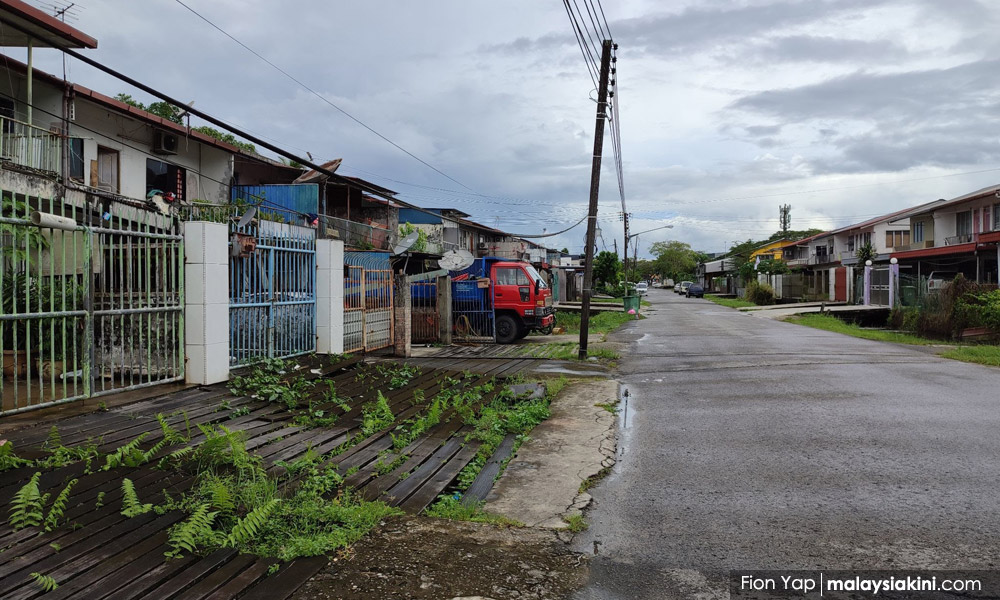
Despite these efforts, virtually everyone in Sibu has a flood tale to tell. One Bukit Assek resident claimed that his neighbours waited for flood waters to recede by staying in a hotel for a week.
Another elderly man in Lebaan claimed that he was trapped at home for two months a few years ago and depended on his children to regularly send supplies.
Some Dudong residents claimed that once the Bagong Dam was completed, there were some improvements to the situation in the area.
But Huong, who lived in Nangka, complained that when the Bagong Dam is discharged, their road will end up being flooded.
Many of those interviewed believed that logging and land clearing for palm oil plantations further inland were primarily to blame. They believe that sediments that flood into the Rajang River had made the riverbed shallower.
They also questioned why the problem has not been solved completely after the government pumped so much funds and time into the flood mitigation project.
In 2015, Wetland International issued a research report reminding that the Rajang delta has more than 80 percent peatlands, hence it is not suitable for oil palm plantations which need artificial drainage.
Otherwise, the report warned, nearly all peatland in the area is expected to be lost for production and facing flood issues within decades and most within the next 100 years.
Sarawak has 82 state seats Sarawakians are going to cast their votes in the coming Saturdays. - Mkini



No comments:
Post a Comment
Note: Only a member of this blog may post a comment.